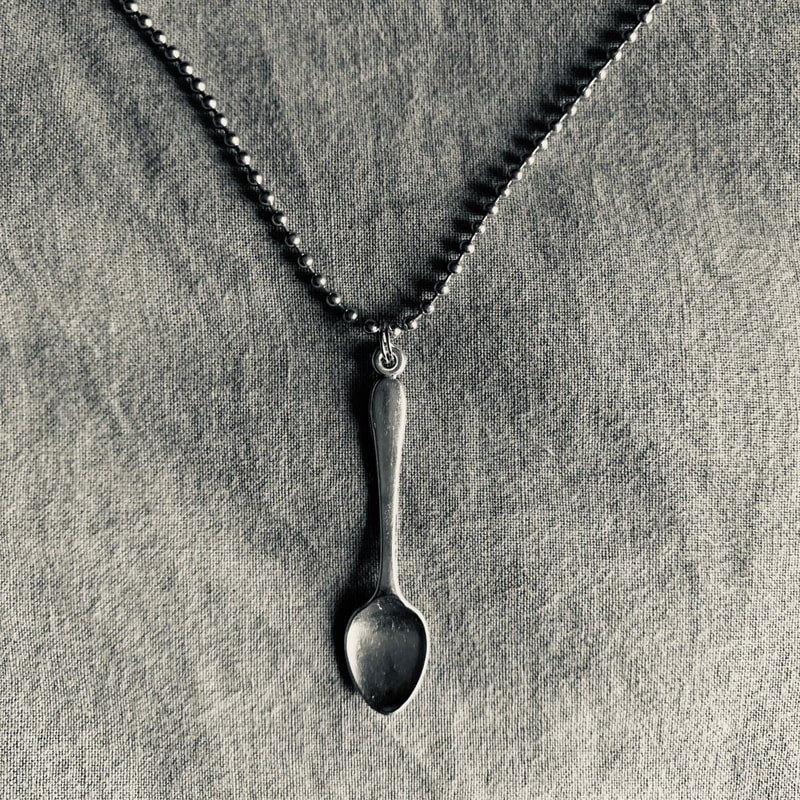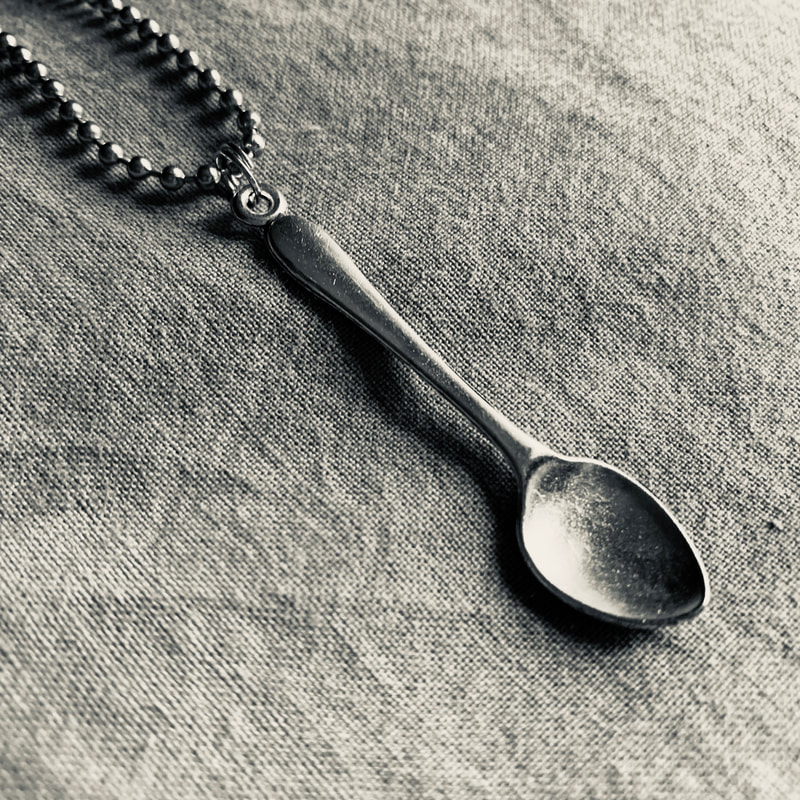MEET MADISON
OFFICIAL AWARENESS TIES ADVOCATE
FOR 'THE SPOON LIFE'
FOR 'THE SPOON LIFE'
"I wear my spoon for Diabetes."
"I have Type 1 Diabetes." |
Jack: What type of Diabetes do you have, when were you first diagnosed and what is a ‘day-in-the-life’ of managing Diabetes look like for you?
Madison: I have Type 1 Diabetes. I was diagnosed with the autoimmune disorder at the age of six. A typical day in the life of managing diabetes for me consists of at least 3/4 finger pricks a day to check my blood sugars and make sure they are stable and not too low or high. I check my blood sugar in the morning when I wake, before breakfast, lunch, dinner, before bed, or when i’m feeling ill. If my blood sugar is too high, or I am about to consume carbohydrates from eating, I have to take an insulin injection. I love to eat, so I often sneak away to a private spot away from others, to do all of this. Having diabetes doesn’t consist of a set dosage every day like most illnesses. Basic algebra is incorporated to help diabetics determine how much insulin is needed, based on the level of glucose monitored in our blood, and the amount of carbohydrates we plan to consume. It is different for every diabetic, nobody has the same exact regimen. Once it is time for bed, it’s crucial to remember to take our long acting insulin so our blood sugar levels don’t increase while we are dormant/inactive. This prevents us from going into a diabetic coma or becoming sick with ketones, and being admitted at the nearest hospital. Jack: For those of us who don’t live with Diabetes, what is one thing that you would like for us to know? Madison: If you do not live with Diabetes or know much about in general, I want you to know that it is a LOT to process. The ways it can impact your life, your personality, your physical and mental health, and especially your long term health, is frightening to think about. One day you’re perfectly healthy, then a friend with a small stomach bug gets you sick, and you’re in the hospital for a week. Simple colds or bugs can affect us in a more severe way, than those without an autoimmune disorder. On top of that, Diabetes is commonly associated or “partnered with” another autoimmune disorder. So if you have Type 1 Diabetes, I’m sorry to break it to you, but you’re most likely going to be diagnosed with another disease. The best part is, you have no idea when this will happen or what you will be diagnosed with. Scary right? Having Type 1 Diabetes can cause mood swings, random bursts of anxiety or anger, depression, and more. So next time someone you know that was diagnosed with Diabetes is acting out of character (and is sober), politely ask if they feel alright or suggest maybe they should check their sugar to be safe. It’s all about keeping your blood sugar levels stable, in hopes that you can live a healthy and happy life. Jack: While Diabetes is part of who you are, it certainly doesn’t define you. Please do fill in the blank with a word or phrase that best defines you. “Madison is ________.” Madison: While Diabetes is a part of who I am, it certainly doesn’t define me. “Madison is Tenacious”. |
HELP RAISE AWARENESS
More than a metaphor for life, this spoon is a symbol and a statement for living each day 'a spoonful at a time'. Spoons represent energy. You wake every morning with only so many 'spoons'. You can't control the number of spoons you have. You can only control how they're spent. So, how will your spoons be spent?
For those with an invisible illness, fatigue can be a major issue. If you don't have a chronic condition, the concept of severe fatigue can be difficult to understand. This is where 'the spoon theory' comes in. Here's how the story goes...
Lupus patient Christine Miserandino felt that words were insufficient to adequately communicate to able-bodied people what it is like to struggle daily with chronic illness. Instead, she used 12 spoons in a café as a metaphor for her daily energy stores and gave the spoons to her friend, taking one back every time an activity like taking a shower or getting dressed was mentioned. The message gradually got through to Christine’s friend, who was shocked by the revelations of the experiment.
The Spoon Life Necklace is designed to serve as a reminder that we only have so many 'spoons'. While you can't control the quantity of spoons you have, you can control the quality of their use. Do the best with what you have. Find comfort and confidence in putting your spoons to good use.














